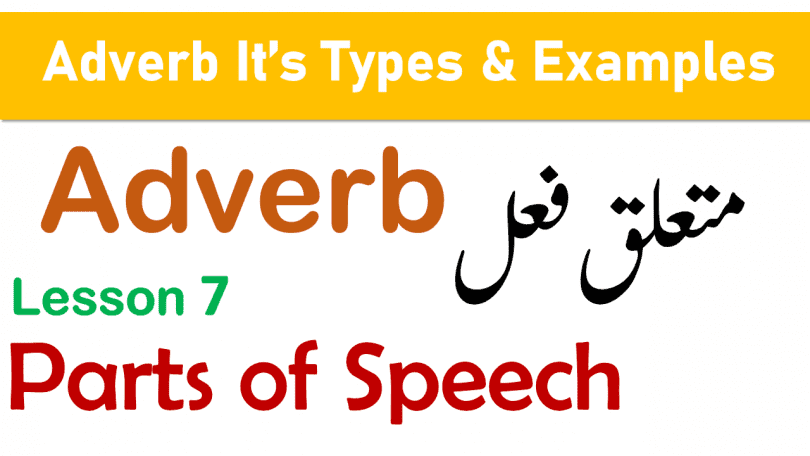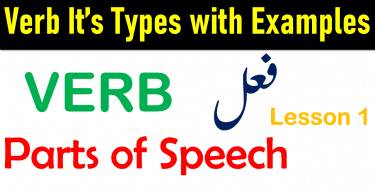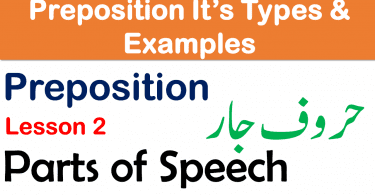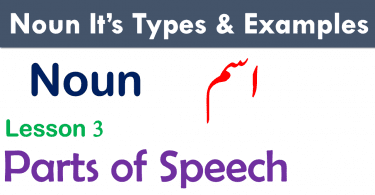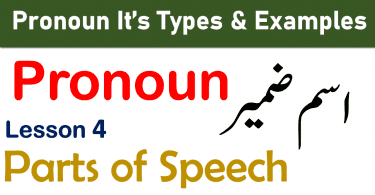In this blog post, we will break down the types of adverbs and their usage in Urdu. Adverbs are essential in modifying verbs, adjectives, or other adverbs, and understanding their types can improve your communication. Knowing how to use adverbs effectively helps make your sentences more descriptive and precise. By the end, you’ll have a clearer understanding of how to use adverbs in both English and Urdu. Want to improve your grammar skills further? Check out our grammar category for more helpful tips!
Table of Contents
What are Adverbs?
Adverbs are words that describe or give more information about verbs (actions), adjectives (descriptions), or other adverbs. They tell us how, when, where, or to what extent something happens. For example, in the sentence “She runs quickly,” the word “quickly” is an adverb because it tells us how she runs. Adverbs make sentences clearer and more detailed.
تعریف: ایسا لفظ جو کسی فعل، متعلق فعل یا اسم صفت کے معنوں میں
اضافہ کرے اسے متعلق فعل کہتے ہیں۔
List of Adverbs with Urdu Meanings
Here’s a list of adverbs with their Urdu meanings:
- Quickly – تیزی سے
- Slowly – آہستہ آہستہ
- Carefully – احتیاط سے
- Loudly – زور سے
- Softly – نرمی سے
- Easily – آسانی سے
- Always – ہمیشہ
- Never – کبھی نہیں
- Sometimes – کبھی کبھی
- Often – اکثر
- Certainly – بلاشبہ
- Almost – تقریباً
- Really – واقعی
- Truly – سچ میں
- Exactly – بالکل
- Simply – سادگی سے
- Sincerely – مخلصی سے
- Basically – بنیادی طور پر
- Clearly – واضح طور پر
- Happily – خوشی سے
Types of Adverbs
Adverbs are words that modify verbs, adjectives, or other adverbs, providing additional information about how, when, where, or to what extent an action occurs. The main types of adverbs include:
Adverbs of Manner
Describes how an action is performed.
یہ قید الفاظ بتاتے ہیں کہ کسی عمل کو کس طریقے سے کیا گیا۔
- Examples:
- She sings beautifully.
- وہ خوبصورتی سے گاتی ہے۔
- He runs quickly.
- وہ تیز دوڑتا ہے۔
- They work hard.
- وہ محنت سے کام کرتے ہیں۔
- She speaks softly.
- وہ نرمی سے بولتی ہے۔
- He plays the guitar skillfully.
- وہ گٹار مہارت سے بجاتا ہے۔
- She sings beautifully.
Adverbs of Time
Indicates when an action happens.
یہ قید الفاظ بتاتے ہیں کہ کسی عمل کا وقت کیا ہے۔
- Examples:
- I will call you later.
- میں تمہیں بعد میں کال کروں گا۔
- She will arrive tomorrow.
- وہ کل آئے گی۔
- They often visit us.
- وہ اکثر ہمیں ملنے آتے ہیں۔
- He never goes to bed early.
- وہ کبھی جلدی بستر پر نہیں جاتا۔
- We already ate lunch.
- ہم نے پہلے ہی لنچ کر لیا تھا۔
- I will call you later.
Adverbs of Frequency
Describes how often an action occurs.
یہ قید الفاظ بتاتے ہیں کہ کسی عمل کو کتنی بار یا کتنی دفعہ کیا گیا۔
- Examples:
- She always helps others.
- وہ ہمیشہ دوسروں کی مدد کرتی ہے۔
- I rarely eat junk food.
- میں شاذ و نادر ہی جنک فوڈ کھاتا ہوں۔
- He frequently visits his parents.
- وہ اکثر اپنے والدین سے ملتا ہے۔
- They never lie.
- وہ کبھی جھوٹ نہیں بولتے۔
- I usually go for a walk in the evening.
- میں عام طور پر شام کو سیر پر جاتا ہوں۔
- She always helps others.
Adverbs of Place
Indicates where an action happens.
یہ قید الفاظ بتاتے ہیں کہ کسی عمل کا مقام کیا ہے۔
- Examples:
- She lives here.
- وہ یہاں رہتی ہے۔
- He looks everywhere for his keys.
- وہ اپنی چابی ہر جگہ تلاش کرتا ہے۔
- I have been there before.
- میں پہلے وہاں جا چکا ہوں۔
- They went out for a walk.
- وہ سیر کے لئے باہر گئے۔
- She is standing nearby.
- وہ قریب کھڑی ہے۔
- She lives here.
Adverbs of Degree
Describes how much or to what extent an action or quality is done.
یہ قید الفاظ بتاتے ہیں کہ کسی عمل یا خصوصیت کی شدت یا مقدار کتنی ہے۔
- Examples:
- She is very tired.
- وہ بہت تھکی ہوئی ہے۔
- This book is extremely interesting.
- یہ کتاب انتہائی دلچسپ ہے۔
- I am too busy to talk.
- میں بات کرنے کے لئے بہت مصروف ہوں۔
- The movie was quite good.
- فلم کافی اچھی تھی۔
- He is slightly taller than me.
- وہ مجھ سے تھوڑا سا لمبا ہے۔
- She is very tired.
Adverbs of Probability
Indicates how likely or unlikely an action is to happen.
یہ قید الفاظ بتاتے ہیں کہ کسی عمل کے ہونے کا امکان کتنا ہے۔
- Examples:
- She will probably come to the party.
- وہ شاید پارٹی میں آئے گی۔
- He will certainly help you.
- وہ آپ کی مدد ضرور کرے گا۔
- I will definitely call you tomorrow.
- میں آپ کو کل ضرور کال کروں گا۔
- They might join us later.
- وہ بعد میں ہمارے ساتھ شامل ہو سکتے ہیں۔
- It will possibly rain today.
- آج شاید بارش ہو۔
- She will probably come to the party.
Adverbs of Conjunction
Connects or joins ideas, showing how an action is related to another.
یہ قید الفاظ خیالات کو جوڑتے ہیں اور بتاتے ہیں کہ ایک عمل دوسرے عمل سے کس طرح متعلق ہے۔
- Examples:
- However, he was late.
- تاہم، وہ دیر سے آیا۔
- She was tired, but she continued working.
- وہ تھکی ہوئی تھی، لیکن اس نے کام جاری رکھا۔
- I like tea, although I prefer coffee.
- مجھے چائے پسند ہے، حالانکہ میں کافی کو ترجیح دیتا ہوں۔
- She didn’t go to the party, because she was sick.
- وہ پارٹی میں نہیں گئی کیونکہ وہ بیمار تھی۔
- He failed, yet he tried again.
- وہ ناکام ہوا، پھر بھی اس نے دوبارہ کوشش کی۔
- However, he was late.
Adverbs of Affirmation/Negation
Shows whether an action is true or false.
یہ قید الفاظ بتاتے ہیں کہ کوئی عمل سچ ہے یا جھوٹ۔
- Examples:
- She is certainly coming.
- وہ یقیناً آ رہی ہے۔
- He is not attending the meeting.
- وہ میٹنگ میں نہیں آ رہا۔
- I never drink soda.
- میں کبھی سوڈا نہیں پیتا۔
- He has indeed completed the task.
- اس نے حقیقت میں کام مکمل کر لیا ہے۔
- I always agree with her.
- میں ہمیشہ اس سے اتفاق کرتا ہوں۔
- She is certainly coming.
You May Also Like

